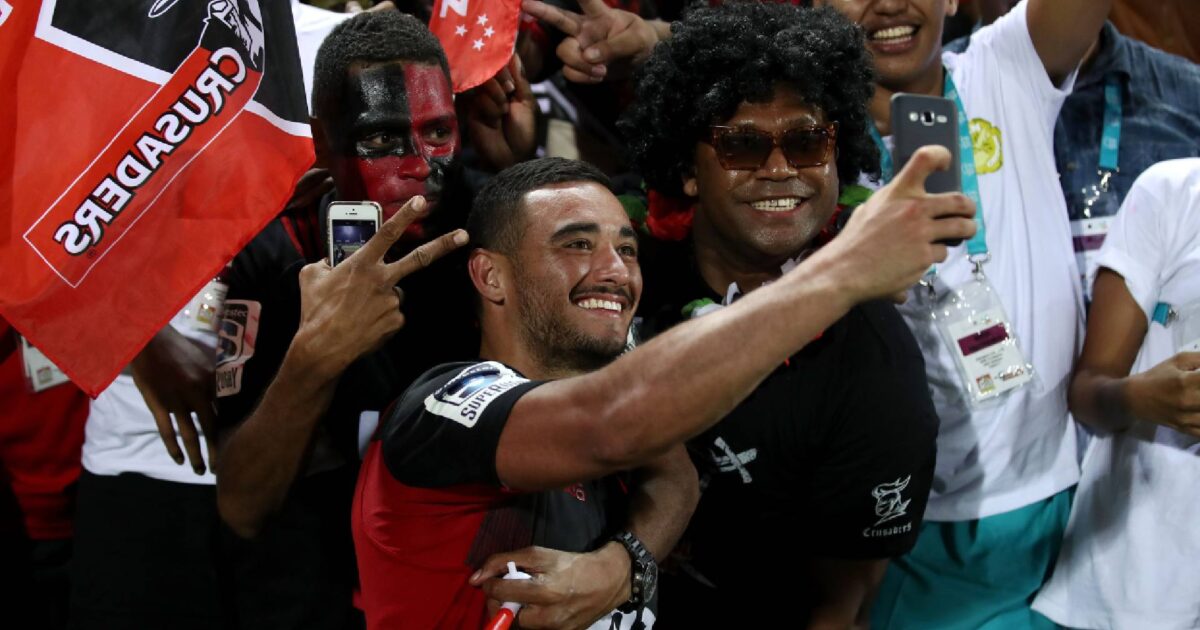'The last thing you want to do is half-arse it': Super Rugby stars issue warning about expansion into the Pacific Islands

The potential induction of a South Auckland-based Pacific Islands team into a revamped version of Super Rugby would be great for the game, but competition organisers need to make sure lessons have been learned from previous failed expansions.
That’s the verdict from Super Rugby Aotearoa stars Bryn Hall and Brad Weber, who both appeared on RugbyPass’ Aotearoa Rugby Pod to discuss the future of the newly-announced Kanaloa Hawaii franchise.
Co-owned by former All Blacks Jerome Kaino, Joe Rokocoko, John Afoa, Benson Stanley, Anthony Tuitavake and Ben Atiga, reports last week revealed that Major League Rugby had accepted a bid from the club to join the North American competition ahead of the 2021 season.
With the future of Super Rugby beyond this year still up in the air, though, Kanaloa’s chief executive Tracey Atiga hinted that a possible venture into the Southern Hemisphere club competition wasn’t out of the question.
“The sky is the limit now. We’ve done the impossible,” Atiga told New Zealand show Tagata Pasifika.
“We went through a COVID period of four months and put together an application that was strong and that was approved by the MLR.
“We’re in conversations with NZ Rugby at the moment. We’d love to have a spot in Super next year and we’re ready for it. We’ve proven that we’re ready.”
Atiga further expanded on her comments to RNZ, explaining that the club would look to field a seperate team in Super Rugby to the side that would take part in MLR, with the former team to be based in South Auckland.
“We would essentially set up our satellite programme which is here in south Auckland to accommodate a second team,” Atiga said.
“So we are not talking about one team that plays in the MLR and then they come and play in Super Rugby – we are talking about two pro teams that would have equally competitive athletes at that level and we would own and operate them in co-ordination with each other.”
News of a Pacific team possibly entering Super Rugby was lauded by both Hall and Weber, who agreed that it would be a positive step in acknowledging the contribution Pacific players have made to the sport.
“If you think about the Pacific Island communities and how much they’ve done for New Zealand Rugby, not just at the professional level, but at the All Blacks and the greats of the game were Pacific Islanders and Maori,” Crusaders halfback Hall said.
“It’d be great for them to have a platform and a forum to help them and to give them a chance to play more rugby.
“I can see it now with how much of a following they would have.”
Chiefs star Weber added: “It’s great, I think it’s awesome. Awesome for the Pacific Island too. It would be great to see them have a sort of semi-professional team.
“Games in Fiji, Samoa and Tonga, that would be quite cool too, it would be a great dynamic for us.”
https://www.instagram.com/p/CCfWQRxgiEI/?utm_source=ig_web_copy_link
The pair, however, both issued warnings about how Kanaloa’s inclusion into the Super Rugby set-up would need to be done cautiously and correctly in order to avoid mishaps that have damaged the league’s credibility in the past.
Regular expansions of Super Rugby since 2006 saw the competition grow from 12 teams to 18 within the space of a decade, creating an over-saturation of playing talent which contributed significantly to a depletion of fan interest across the Southern Hemisphere.
As such, the Western Force, Southern Kings and Cheetahs were subjected to messy expulsions from Super Rugby in 2017, and they have since been followed by Japan’s Sunwolves, who played their last matches in the league this year.
Despite SANAAR’s attempts to re-capture the imagination of fans by condensing the league back to 14 teams, much of the damage has already been done as Super Rugby has since become a shadow of its former self as the world’s premier club competition.
Hall said that’s why any future iteration of Super Rugby needs to be handled carefully if any new teams are to be thrown into the mix.
“One thing that we do need to be careful around is that we have expanded before, we have brought teams in like Japan and the Jaguares and we’ve brought in some other South African teams too,” the three-time Super Rugby champion said.
“You don’t want to dilute the competition, so if they do come on board, and they have the support base – and hopefully they do – then they can be competitive.
“The last thing you want to do is half-arse it and just get the brand and the name out there, but if they’re financially supported, have the players and are actually competitive, then it’s going to be great for all parties when a decision is made.”
Weber doubled down on Hall’s sentiments, but was confident that any Pacific Island side would be capable of holding their own in Super Rugby.
“You’d hate for them to come in and get pumped every week, but I’m pretty positive that they could be really competitive right from the outset should they put a decent team together, which I’m sure they could,” he said.































































































